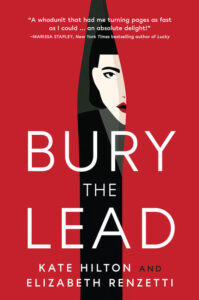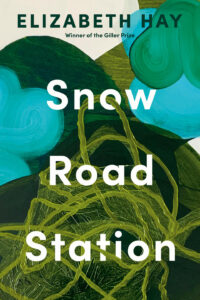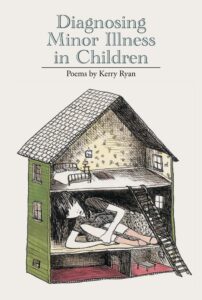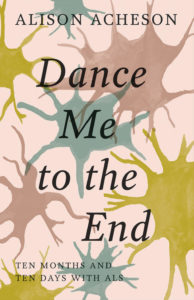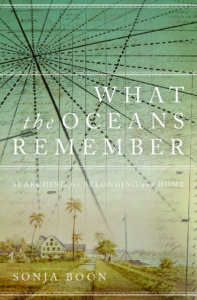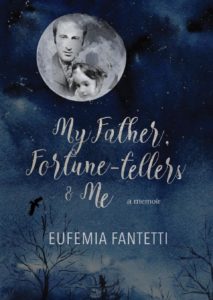November 8, 2024
The Making of a Story Girl
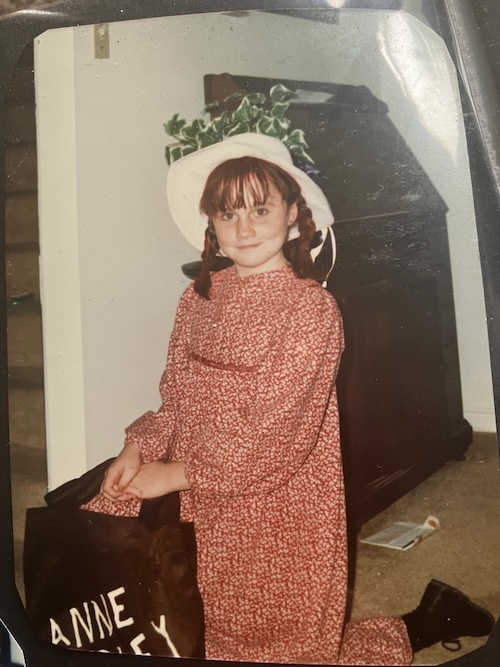
L.M. Montgomery made me a story girl. Throughout so many of her novels, the characters showed me what being a writer entailed, the practical matters, beyond the mere precociousness of declaring oneself as such (though I did that too). It wasn’t simply that Anne and Emily were themselves writers to the marrow, bursting with romantic ideas and florid vocabularies, but that they were unabashed in pursuit of this vocation. In Emily of New Moon, Emily is devoted to practicing writing vivid descriptions in her “Jimmy-books,” which were blank notebooks provided by her supportive cousin. Anne and her friends begin a Story Club in Anne of Avonlea, writing and sharing their own creative works, a conscious act of “cultivating” their imaginations. And I was always fascinated with (and envious of!) the cousins in The Golden Road who manage to create their own household newspaper, full of tales, tips, and teasing, inside jokes and local gossip, and spent my childhood coming up with inferior imitations. Through these different narratives, Montgomery demonstrates not only that a writer is someone who writes, but also how this is done and how storytelling can connect us to each other and the wider community….
Thank you to Sarah Emsley for inviting me to be part of your Maud 150 celebrations.
March 11, 2024
Bury the Lead, by Kate Hilton and Elizabeth Renzetti
“There’s nothing to worry about, Glenda. It’s just routine. There’s no way the cops will think a butter tart feud is enough motive to kill someone. This isn’t Midsomer Murders.”
I first read BURY THE LEAD back in January in preparation for Bookspo Podcast (the episode went live last week!) and returned to it again this weekend as I’ll be interviewing co-authors Kate Hilton and Elizabeth Renzetti (who are friends of mine) as part of House of Anansi Press’s Beer and Book Club at Henderson Brewing this Wednesday March 13. And it’s something to read a mystery novel a second time, when you already know whodunnit, and can pay attention to how the machine is working, all the moving parts. For some books, that might take all the fun out of the experience, but not this one, which I liked even more the second time around. I loved the humour, the similes (the old newspaper that “looked like it had been typeset with a machete”), the fact that it’s concerned with newspapers at all (veteran journalist Renzetti brings her years of experience at the Globe & Mail, and a passion for locals news and journalists in general), the fierce feminism, the small-town Canadian cottage-country setting. It’s the story of Cat Conway, who’s turned up in Port Ellis (where she’d spent summers with her grandparents years before) on the burnt out trail of a marriage and a career both gone out in flames. Very soon, however, it seems that her new, smaller, quiet life is not going to be so quiet after all when the lead in local theatre production (who is a world-famous actor) turns up dead on opening night, and not of natural causes. Ever the reporter, Cat is determined to get to the bottom of the story, along with her posse of news colleagues, a motley bunch if ever there was one, except that it seems like somebody in town is intent on getting between Cat and the truth. But is there anyone more indomitable than a middle-aged woman fuelled by rage who has nothing left to lose? Bury the Lead is pure delight.
August 8, 2023
Book Launch!
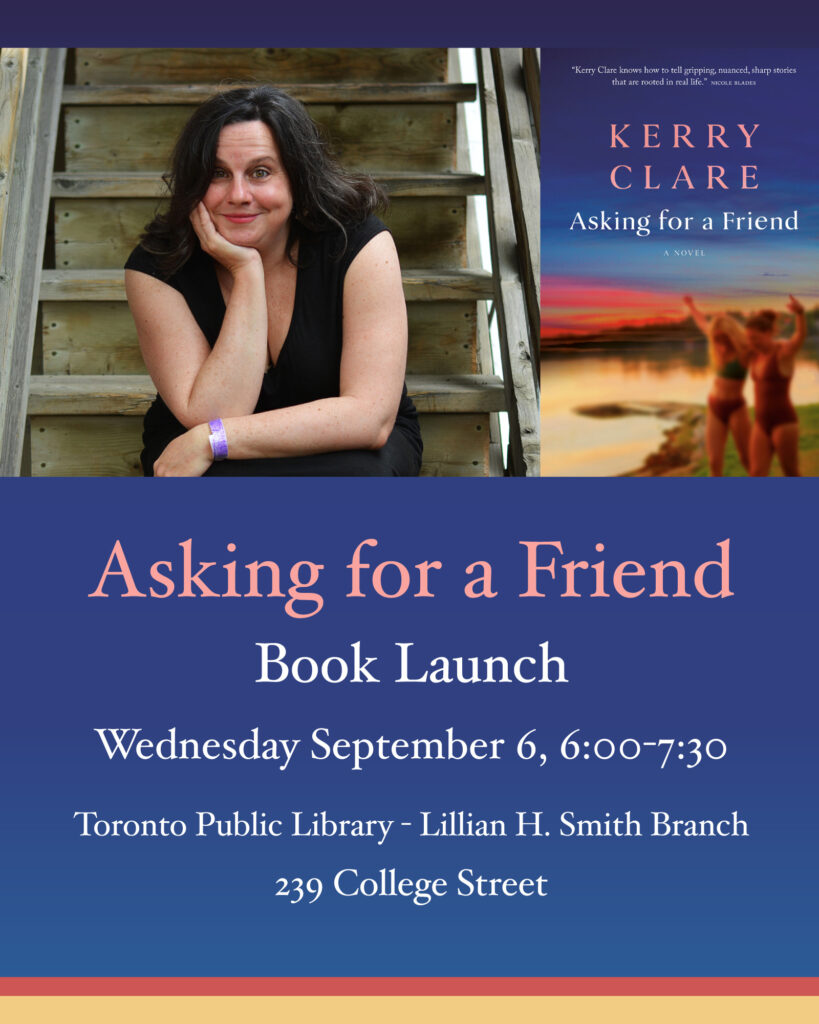
Celebrate friendship and fiction with the launch of ASKING FOR A FRIEND, Toronto author Kerry Clare’s third novel, which is partly set at the Lillian H. Smith Branch, and is the story of an enduring relationship between two best friends that unfolds across decades.
Bring your bestie and listen to readings from audiobook narrator Kate Keenan, take part in a BFF-themed quiz show by Shari Kasman, get your picture taken in the photo booth, and pick up a copy of the book, on sale from A Novel Spot Bookshttps://www.eventbrite.ca/e/asking-for-a-friend-kerry-clare-tickets-682361881757.
This is an accessible venue. Light refreshments will be served.
May 25, 2023
Snow Road Station, by Elizabeth Hay
An essential part of my writing process is getting to the point where I know my characters well enough that that every bit of dialogue becomes essential to my story, no single line that’s incidental or something that anybody else would say to any other person on the planet. This is especially true with fictional people who’ve known each other for decades: there is no small talk, every sentence loaded with meaning, with freight. In Elizabeth Hay’s new novel SNOW ROAD STATION this can be disorienting for a reader, like walking into a room in the middle of a conversation, but this is also what fiction should be, I think.
I really liked this book, though its effect was more subtle than powerful, which is fine because it’s a slim read and I have time to pay attention.
I really liked this book, a story of late middle age and long friendship (“Theirs was a childhood friendship that had lasted, enduring long spells when it existed out of sight, but then there it was again, like strawberries in season.”) but it was not until its final paragraph, which hits with such a force, nothing subtle about it, that I began to really understand the project, what a complicated fascinating book this quiet story really is.
April 13, 2023
Diagnosing Minor Illness in Children, by Kerry Ryan
There is a line from Kerry Ryan’s first poetry collection THE SLEEPING LIFE that I’ve been thinking about for almost a decade and a half since I first read it, the line about the click of her partner’s glasses on the bedside table at the end of the day: “I wait for it all day.” And what remains just as true about Ryan’s vision all these years later as I picked up her latest DIAGNOSING MINOR ILLNESS IN CHILDREN (and read it in a single sitting) is the way she manages to capture those moments of every day existence so fleeting that most of us fail to notice until we see them articulated in a line of her poem, and declare, “Yes, THIS. The miracle of existence in a nutshell!”
Or, as I wrote in my blurb for the book: “Once again, Kerry Ryan’s singular vision and attention to perfect details works to render the ordinary absolutely extraordinary, the world shown anew through these poems about bodies, birth and motherhood, and the wildness of all of it.
Meeting Kerry Ryan at my husband’s colleague’s wedding fifteen years ago (he was marrying her sister!) was such a fortunate event for me, which I was not wholly expected when I was introduced to “another Kerry who likes books.” What are the odds that that other Kerry’s debut poetry collection would be so dazzling, speak so clearly to my soul? That she would end up contributing one of my favourite essays to the anthology The M Word: Conversations About Motherhood, “Confessions of a Dilly-Dallying Shilly-Shallier.” That she would introduce me to the wonderful Ariel Gordon! We’d also hang out in her home of Winnipeg in 2014 where lines from her second collection Vs. (about being a bookish non-sporty girl who takes up boxing) were displayed outside her gym.
So I’ve been waiting a long time for a new book by Kerry Ryan, and I’m thrilled that DIAGNOSING MINOR ILLNESS IN CHILDREN (with gorgeous cover art by Julie Morstad, who is my favourite!) is entirely worth the wait, Ryan turning her eye to parenthood and its excruciating wonderment, to losing a parent, to love and marriage in middle age, noticing everything, those perfect details. This is truly a book to savour.
June 30, 2022
Gleanings
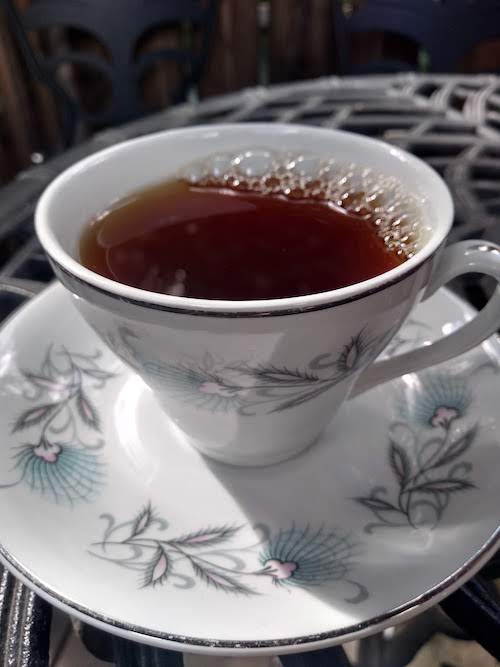
- Keep singing and dancing, drawing and planting gardens. This is no insignificant thing in the face of a movement that wants to make everything plain and ugly, cruel and sour. There is radicalism in refusing to judge. There is radicalism in listening. There is radicalism in saying, gently, ‘That’s not how I see it.’
- This doesn’t happen often. I am not a violent person. But right now, with broken families, broken hearts, beautiful cities torn apart by war, the consistent and constant gaslighting by politicians who could take measures but won’t, no authentic dialog, muddled truth, no compromise toward solutions, all leading to a sense of helplessness. it’s just time to break something. And cry.
- How on earth do we grow compassion, understanding, tolerance and acceptance on such stony ground? By welcoming one and all to the table.
- I remember rotary dial phones as a kid, which morphed into touchtones, then to call-display and the magic of voicemail. I remember when everything went through receptionists. If the person you wanted to speak with on the phone wasn’t there, the receptionist would write the message down on a special message paper, roll it up and pop it into a pigeon hole in a box that sat at the front of her desk (I say her, because back then they were never he).
- I think I want to write more about my life when I feel less sure about it. When things are a little dim or grimy or blurry and I turn to a Google Doc like it’s a magnifying glass or a flashlight.
- Minus our group’s cumulative, ongoing commentary and the special alchemy of our interactions and earned trust of each other’s opinions, adding words of criticism or praise here have no fair context. Does that make sense? And doesn’t that confirm that the secret sauce here is the book lists and information coupled with the chemistry of our fellow readers?
- For one, I’ve been highly reactive with the kids lately. My reaction time to kid-squabble-teen-bitchery is unbeatable. There is nothing faster, literally. My mouth and mother-hat are tilting wildly at windmills. At speed, mind you, which does not mesh well with health and wellness.
- I want to be open to the unexpected. Sometimes, opportunities fall into my lap; sometimes I pursue projects that don’t pan out but I’m glad I tried because why not.
- I want to stop worrying about ‘not enough’. My shaking doesn’t make me ‘disabled’ enough for instance, and there’s so many other things like that I feel. I’m fucking 46 years old and I’ve been though a lot. I think I need to stop being quiet and know we’re all enough, more than that. We just are. I might start going deeper, or at least trying to, and that’s kind of exciting.
- If I’m going to survive, I must make warm drinks. I must boil the water, select the mug, and also the tea – the latter two must align with the season and match the moon and whether I wish to feel free or safe.
- Recently a lovely internet friend and photographer wrote something on her blog that I one hundred percent relate to because what she said parallels how I use this space as well. Donna wrote, “This isn’t a portfolio of perfect images or a gallery of my best work. Instead, it is a record of my experiments and efforts.” When I read that, I couldn’t help but exclaim out loud, “Yes, that’s me too!”
- To follow my spirit, to say NO to societal pressures, is to go against the herd. It is to say once again, after fighting so hard my whole life to escape the pain of it—I am all alone.
- I’m more in love with trees every day now that I live with a forest. Am learning how they’re a community and speak to one another and how sometimes what we might call ‘crowding’ they call protection and comfort. Left to its own devices a forest pretty much knows how to be.
- Some days I think, Why bother? Why bother with writing books that get lost in the ebb and flow of the literary conversation, their voices a little quiet and timorous for these times? Or quilts, because honestly does anyone need another one in a world filled with stuff? But my hands need the work, my mind needs what happens when my hands find their way to loop and tie and dip and stitch. The way I find myself weeping when I see the cloth hanging on the clothesline, the books arriving in a courier’s van. See, you did this. It’s not quite what you meant to do (is it ever?) but you did this. On the cover of handiwork, a whole little flock of painted birds, ready to fly.
January 23, 2020
Ten Years
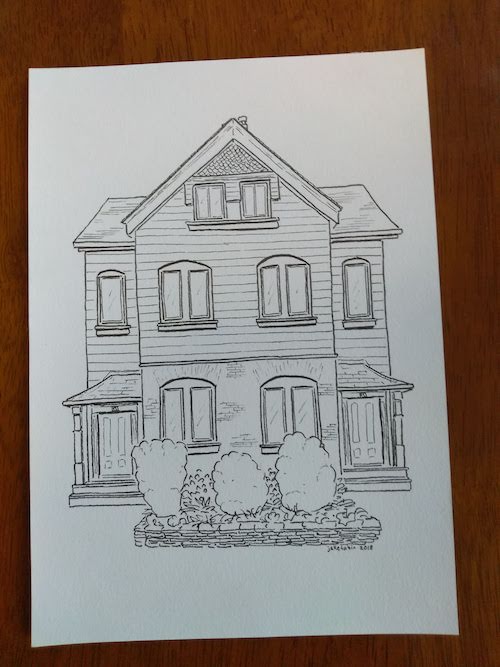
I had some strange feelings about reflecting on the 2010s, mostly because I didn’t. There was a meme going around Instagram stories on New Year’s Eve in which we were supposed to list a highlight from each year, and I even tried to post it, but couldn’t figure out how to get the text to fit, which maybe means that the 2010s were the decade in which I stopped being technologically savvy.
But also, the years all blend together, and so much stayed the same. The decade before was much more filled with upheaval and revolution (they were my 20s after all) but in the 2010s were where the pieces started to fit. I stopped having babies, I began to have something like a career, I finally started publishing books, I made some wonderful new friendships, and maintained old ones. It’s been good, but the decade itself, its distinction, just seems particularly arbitrary. Like—even more than a decade should.
Or do I only think that because when the decade started, I was sitting in the very same place that I’m sitting right now?
Okay. not the exact same place. (We finally bought a new couch, remember?) But the same address, our apartment, which we moved into twelve years ago this April, the longest I’ve ever lived anywhere. I moved in as half of a young married couple, and now I’ve got two kids and I’m forty, and have been married almost 15 years. The little kids who lived next door moved out and went to university, and then moved back in again, although it didn’t do me much good when they did, because now they’re too old to babysit. But, as the middle section of To the Lighthouse, so astutely put it: Time Passes.
Imagining our own story as told from the perspective of the house as Woolf does in her novel (except with less war and death). The people coming and going, coats and jackets hung up on hooks and taken down again, early morning alarm clocks and dinners, and house guests, and holidays, and the quiet weeks where we’ve all gone away, and coming home again, an explosion of luggage, and the babies arriving, and late nights with the lights on while the world sleeps, and the babies grow, and all the books that come in and those that go back out again (returned to the library, or left on the garden walls for any takers), and the birthday parties, play dates, first day of schools, pencilled lines in the door-frame measuring from small to tall, and boots and shoes and sandals in a pile at the door, and the triumphs and disappointments, throughout anxiety and contentment, and these walls have contained it all. Even as spare rooms turned into nurseries and cribs turned into bunk-beds, and empty space turned into clutter—Lego, puzzles, and play-doh—and that ring on the carpet from where I put down a teapot and it melted. How places seem to hold us, even more than time does, and how a single place can hold so much, and so can a life.
December 11, 2019
Other Dives into Other Lives
Dance Me To the End, by Alison Acheson
Alison Acheson’s memoir is all about narrative, narratives the defy the laws of narrative, or at least the commonly supposed one. After twenty-five years of marriage (and raising three sons), she discovers that she’s fallen in love with her spouse again, that they have reached that pivotal moment so many couples arrive at after years of living separately and taking the other granted—and then they decide to go on into the future together. But then the future would not stretch long, because not long afterwards, her husband is diagnosed with ALS. The decline is fast and brutal—he lives just ten months after that, and she has resolved that she will care for him at home until the end, but she didn’t really know what she is promising at the time. Told in fragments, some poems, Dance Me to the End is a memoir about marriage, aging, family illness, caregiving, and how to understand one’s own story, especially when it seems like you know the ending already (but, of course, you never do).
What the Oceans Remember, by Sonja Boon
So, before I read Sonja Boon’s memoir, I didn’t actually know where Suriname was. Beside Guyana, okay, but then I thought Guyana was somewhere in Africa, perhaps, but no. Geography is difficult—for some of us more than others, it seems—which is an underlying point to this book, with Boon attempting to understand her own personal geography and history, to connect the islands of her ancestry and experience. The memoir beginning in Newfoundland, where Boon now makes her home and raises her family, but she’d been born in the UK to parents who were Dutch and Surinamese, growing up with brown skin on the Canadian prairies, the product of Dutch colonialism, the Slave trade, with ancestors who’d come from India and Africa as indentured labourers and slave workers themselves. This memoir is an exploration of memory, archival documents, and the limits of both. It’s also about music, race, lineage, inheritance, and family, and I loved it. A truly extraordinary, entrancing work.
My Father, Fortune-Tellers & Me, by Eufemia Fantetti
A memoir that begins, “My father likes to say he was lucky that God held both his hands and stopped him from killing my mother.” Who wouldn’t be intrigued and want to read on? Fantetti is a fantastic writer (I loved her short story collection A Recipe for Disaster, way back when…), and structures her memoir with the use of Tarot cards to tell a story of her Italian parents’ arranged marriage, her mother’s mental illness, which contributes to Fantetti’s own traumatic childhood, and her complicated relationship with her beloved father, who has struggles of his own. Dark and funny, vulnerable, honest and full of love, this memoir is rich and entertaining.
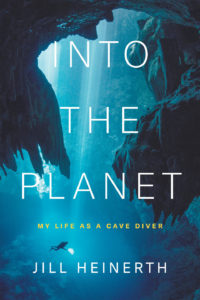
Into the Planet, by Jill Heinerth
I honestly thought I kind of knew about cave diving. Because I love swimming, see, and I loved the blue of the cover, the sense of adventure. However, nope, it turns out that cave diving is nothing like I’d ever imagined, and even reading about it made my heart race, the risks, the chances. But Heinerth writes about how it’s the risk and the chance that drives her, about using her fear instead of letting it rule her, about being a woman in a male-dominated occupation, and about the endless depths of her passion for exploration, for discovery, to find parts of the world that no one else has ever seen.
Falling for Myself, by Dorothy Ellen Palmer
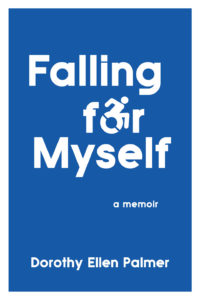
I’ve learned a lot from Dorothy Ellen Palmer over the years, about activism, and ableism, and how to write a novel with a twist. In her memoir, Falling for Myself, she puts the different pieces of identity together—adoptee, disabled, teacher, activist, parent, senior citizen, author— to tell the story of her life from A-Z, and she’s holding nothing back, fed up with being silent too long in a world that expects her (everyone) to conform to its impossible expectations. Palmer is fierce, and she is furious, justifiably so, but she is also witty, generous, a born storyteller, and she has created a fascinating and most compelling book.
December 9, 2019
Girl, Woman, Other, by Bernardine Evaristo
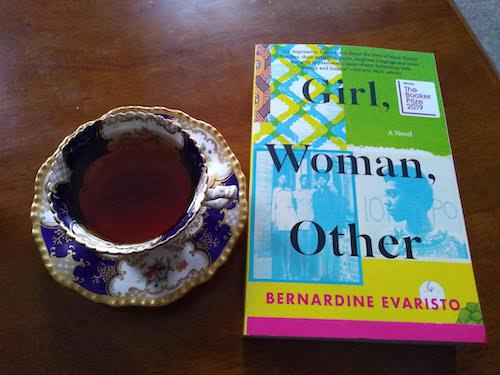
It’s so good. It’s that simple. Girl, Woman, Other is the first book by Black woman to ever win the Booker Prize (a long time coming, right?) and so you should read it, but you’ll also want to . You will start reading and not want to put this book down, and in the meantime you’ll be raving about it to strangers on the streetcar. That is, if your experience is anything like mine.
Evaristo has explained the style of the novel as “fusion fiction”: “that’s what it felt like, with the absence of full stops, the long sentences. The form is very free-flowing and it allowed me to be inside the characters’ heads and go all over the place – the past, the present.” Ostensibly about a single evening in London as a play by a Black lesbian playwright opens at the National Theatre, the novel spans the twentieth century, moves between communities in Britain, Africa and the Americas, and tells the story of twelve central characters from birth to death in a few cases, and in others to the present day. It’s a novel “about Black womanhood,” but what falls under that umbrella is wide-ranging, kaleidoscopic, diverse and disagreeing in the most fascinating way. This is a novel that’s rich with twists and connections, and surprises.
The characters include Amma, the aforementioned playwright, who recalls her radical days in contrast to now being considered establishment (or as much as a Black woman could ever be); her daughter who must find new ways to rebel against her counterculture parents; and her longtime friend and former collaborative partner, who fell in love and moved to a feminist commune in America where she becomes trapped in an abusive relationship.
The connections are not always clear at first—Carole, a superstar in the world of finance, is attending Amma’s play, but she’s part of the tapestry in other ways as well, and so is her mother, Bummi, who steers the following section, telling the story from her youth in Nigeria, her immigration to England, the death of her husband, and her determination to build a business and succeed—as well as her disappointment at how her own daughter’s success has put distance between them. And then we meet LaTisha, once upon a time Carole’s classmate, but her life took on a different kind of trajectory.
Amma’s childhood friend, Shirley, who teaches unruly youths at a London school, who started out teaching with big dreams and great ideals, which become ground into nothing after working through the Thatcherification and bureaucratization of teaching and society in general in the 1980s. And Shirley’s mother, Winsome, whose own story comes with a surprising twist, and Penelope, Shirley’s colleague, who’s got one of her own.
And then a non-binary social media influencer, Morgan, and their great-grandmother, Hattie, who lives on the family farm near Newcastle, and her own mother, Grace, which takes us to long before and far away from the opening night of Amma’s play, but everything is connected, in satisfying and illuminating ways.
That a single novel can hold so much is extraordinary —and that it can do it while being stylistically innovative and so joyful to behold is even more so. Girl, Woman, Other is magnificent, and honestly, it’s the only Booker winner you need.
June 12, 2019
Echolocation and Meteorites
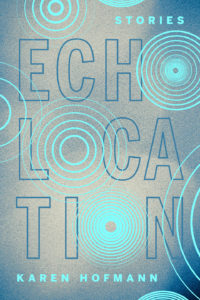
Echolocation, by Karen Hofmann
As a fan of Karen Hofmann’s novels (I loved After Alice, and What is Going to Happen Next is a title I’ve been recommending widely) I’ve been looking forward to her short story collection, Echolocation, which was published in April—and it did not disappoint. The stories themselves are wide-ranging in tone and style, as well as in their publication history, if Hofmann’s “Acknowledgements” are any indication—the title story was published in Chatelaine in 1998 (and now I am nostalgic for short fiction in women’s magazines, and women’s magazines in general. But I digress). Stories are written in the first person, third person, and even one in first person plural, which I liked a lot—about a group of colleagues retreating to a cottage after a conference, and it’s an incredibly orchestrated melee. “Echolocation” is a story of miscarriage and marriage. In “Virtue, Prudence, Courage,” two misfit newlyweds turn feral on their wilderness honeymoon. In “The Swift Flight of Data Into the Heart,” a woman’s long-buried secret is beginning to rise to the surface. As in What Is Going to Happen Next, this book is impressive for its broad scope and convincingness at all corners—suburban wives and mothers, middle-aged men, a family of immigrants from Bosnia, an ex-nun, an elderly painter who clings to her independence, and former trumpet player from a travelling band of people with dwarfism, although the narrator was taller than they would have liked, but they needed trumpet players, as all bands do.
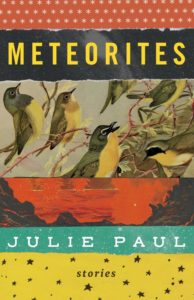
Meteorites, by Julie Paul
I was also excited to read the latest by Julie Paul, whose last book was winner of the City of Victoria Butler Book Prize and made the Globe and Mail’s Top 100. Similar to Echolocation, Meteorites is a grab-bag of various delights, whose stories whose concerns include obnoxious step-children, ghosts, teenage friendship, brotherhood, a young daughter’s self-harming, an organist determined to persist after her arm is amputated, and also murder. The settings seem familiar, but something sinister lies at their edges—sometimes surreally so—which is part of what makes these stories such compelling reading.
